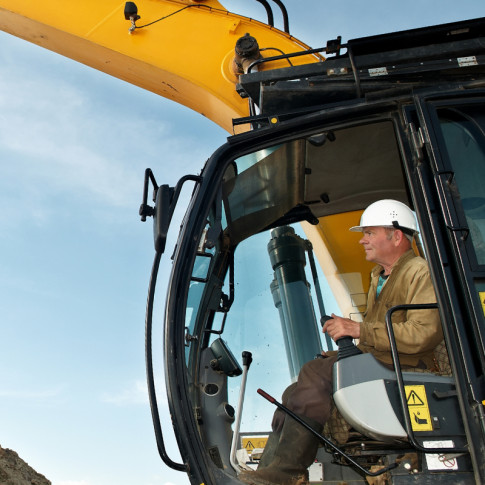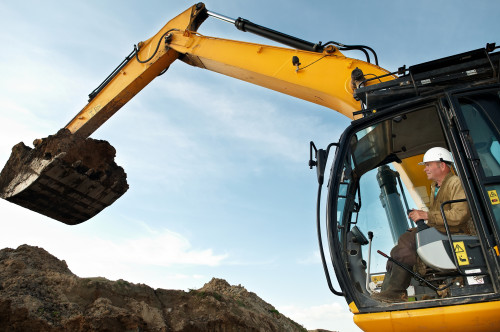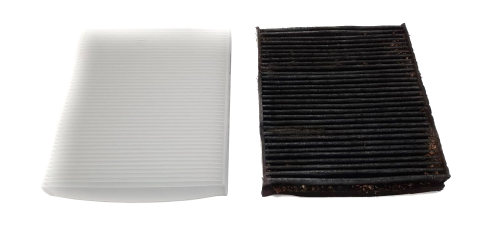Holm Fresh

The Importance of In-Cab Air Filtration
Some of the most important filters on plant and construction equipment are not those that feed and filter the lubricants in the engine and operating systems, but those that keep the operator of the machine healthy. Airborne dust generated on a construction site can be a respiratory hazard and lead to occupational lung disease.
By its nature, construction equipment is usually being utilised in very dusty and dirty conditions. However, little thought is often given to controlling the quality of air in the cab and which the driver or operator then breathes.
Cabin air filtration is not new. Indeed, some vehicle and car manufacturers, notably Saab and Volvo from Scandinavia, have been incorporating filtration, to protect the occupants, into their vehicles for some 40 years or more. Because of the movement of the vehicle and/or the use of a fan to bring air into the cabin, the positive pressure created can also assist with minimising contaminants.

Because of concerns, the HSE undertook research into in-cab air filtration in plant vehicles and published a report in 2018. Although the focus of this research was equipment being used in quarries, which of course can be particularly dusty and dirty, the lessons learned equally apply to plant and equipment being operated on construction sites.
Tackling occupational lung disease is a priority for the HSE. Their concern was that little was known about the effectiveness of in-cab air filtration as a control measure where drivers and operators can potentially breathe in hazardous airborne dust.
Which one of these are you breathing in through?

The research examined the factors that influence the effectiveness of in-cab air filtration systems not only including the filters themselves but also system design, in-service use and maintenance. A new scientific method was developed to evaluate filtration system efficiency.
The research found that penetration of hazardous dust into vehicle cabs was widespread. Also that staff, both at a management and an operator level, had variable knowledge about the effectiveness of in-cab air filtration and the level of protection it afforded.
Practical steps were identified that can be taken to improve the protection of workers, including the importance of filter maintenance / replacement and ensuring that drivers are made aware of the actions they should take.
Among the findings was that there was a general failure to recognise the importance of in-cab filtration and thus often the required filtration capability was not considered when purchasing filters. To maintain filter performance and effectiveness, filters should be maintained to schedule and replaced when specified. Ideally, HEPA (high efficiency particulate air) filters should be utilised to the European Standard EM1822, particularly for extreme situations where a high level of dust or similar is present.
The research also found that drivers and operators can take significant steps to reduce their exposure to outside contaminants. Examples include not opening cab doors and windows, including where possible to aid communication and ventilation, removing dust from boots and clothing before entering the vehicle plus keeping the cab clean, as contaminants can become airborne, particularly if agitated by the vehicle’s ventilation system. Also that training should be provided in this respect from a management perspective. These steps will help to ensure the effectiveness of in-cab air filtration as a control measure.
In most cases, vehicle cabin filters should not be cleaned, and certainly not with compressed air as has been the case in the past, as this will significantly compromise the performance of the filter unit. Instead, filters should be replaced at the relevant service intervals.
For further advice and/or assistance with information on in-cab filtration, please phone Holm on 01403 914400 or send an email to info@holmfilters.com. To select the right cabin air filters, please visit our Filter Finder.
